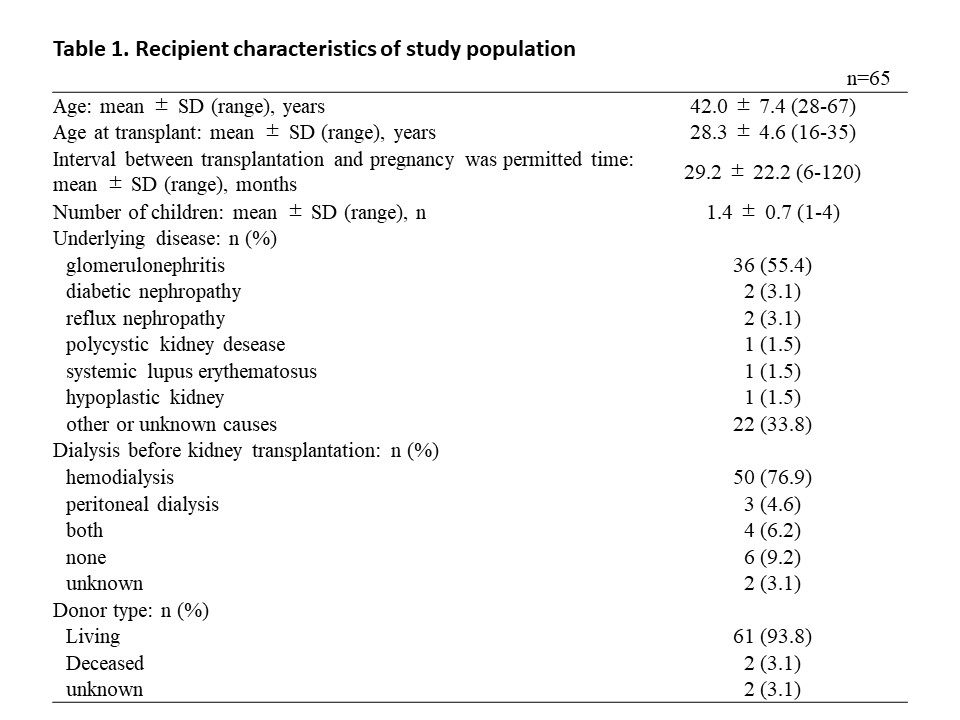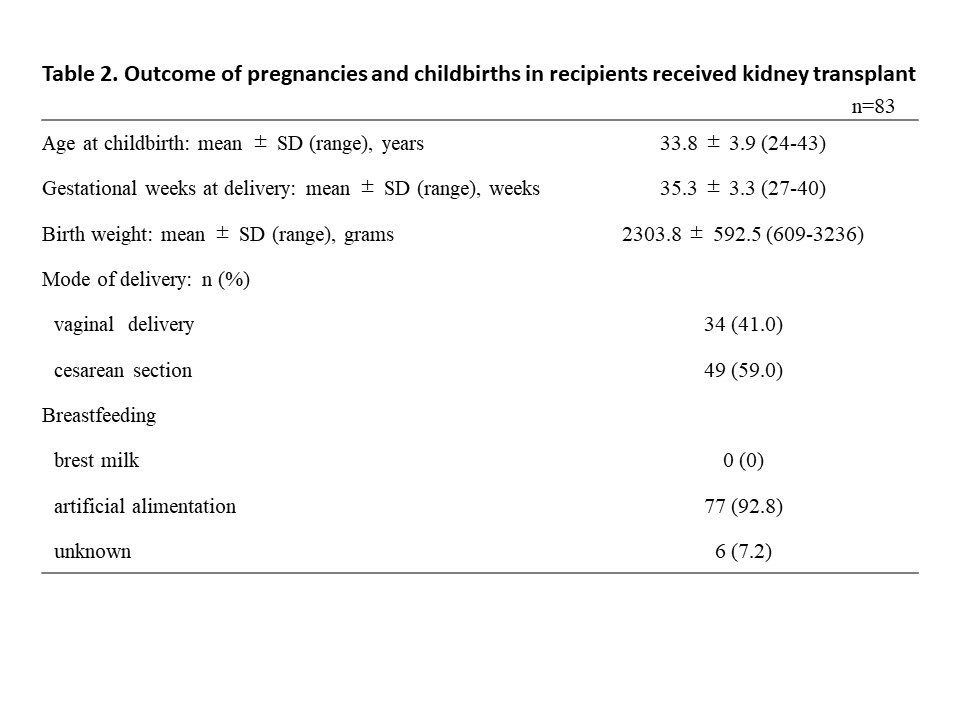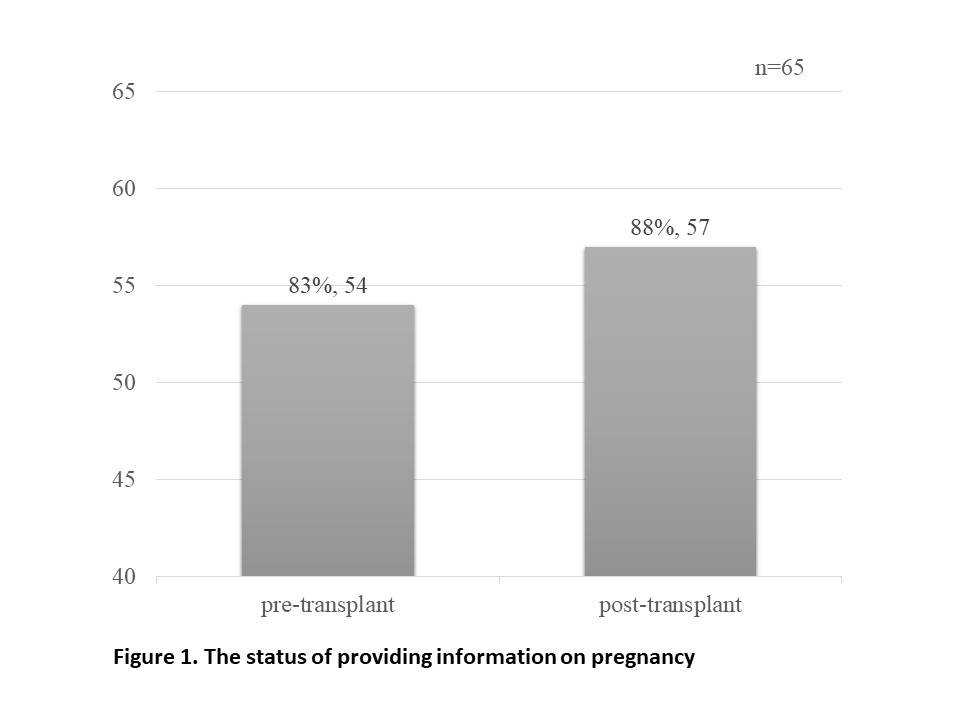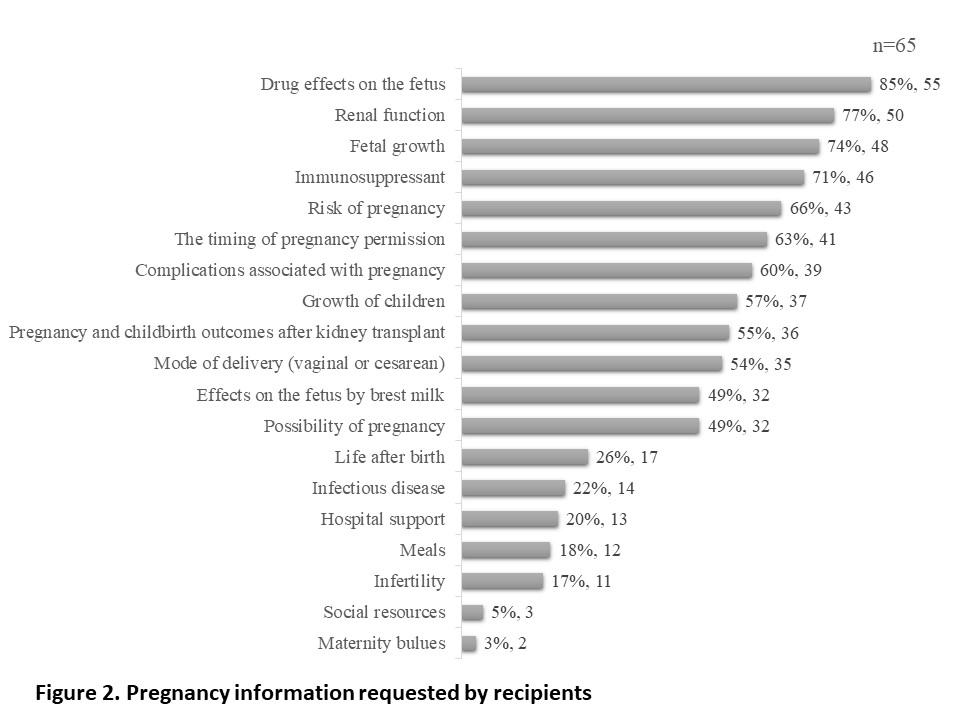Perspective on Pregnancy Counseling for Kidney Transplant Recipients
Yuki Yoshikawa1,4, Junji Uchida2, Chiharu Akazawa3, Nobuhiko Suganuma4.
1Faculty of Nursing, Setsunan University, Hirakata City, Japan; 2Department of Urology, Osaka City University Graduate School of Medicine, Osaka, Japan; 3Faculty of Nursing, Osaka Medical College, Takatsuki, Japan; 4Department of Human Health Science, Kyoto University Graduate School of Medicine, Kyoto, Japan
Introduction: For individuals who have undergone organ transplants, pregnancy counseling is necessary to avoid high-risk or unwanted pregnancy. This study investigated kidney transplant recipients’ pregnancy outcomes and their requests for pregnancy information, to gain future directions for pregnancy counseling.
Methods: Data were collected from 65 Japanese kidney transplant recipients from 21 hospitals who had given birth after transplant. Data for 83 fetal outcomes were collected via questionnaire and evaluated. Pregnancy-related data were collected on factors including provision of pregnancy information by medical staff, when the participants hoped to have a child, and request for pregnancy information. Means and standard deviations were calculated for all demographic data and quantitative parameters; quality parameters were calculated in percentage. A chi-squared test was used to compare requests for pregnancy information and recipients were separated into explained and un-explained groups based on provision of pregnancy information pre- and post-transplant. Fisher's exact test was used. One respondent had missing data; data from 64 respondents were available for analyses.
Results: Recipient characteristics are shown in Table 1. Mean age was 42.0 ± 7.4 years; mean age at the time of transplant was 28.3 ± 4.6 years. A total of 83 fetal outcomes were evaluated and are shown in Table 2. Maternal age was 33.8 ± 3.9 years, duration of gestation was 35.3 ± 3.3 weeks, and birthweight was 2303.8 ± 592.5 grams. The status of providing information on pregnancy after transplant is shown in Figure 1. More than 80% of recipients and 54% of recipients’ partners received information from health professionals before and after kidney transplant. Sixty-nine percent of recipients were hoping for pregnancy from pre-transplant period, 5% immediately after transplant, 21% a year after transplant, and 5% others. Pregnancy information requested by recipients is shown in Figure 2, with the highest for "drug effects on the fetus." The chi-squared test (n=64) revealed that the timing of pregnancy permission (P = 0.009), pregnancy and childbirth outcomes after kidney transplant (P = 0.011), and mode of delivery (P = 0.014) differed significantly between groups with the explained group requesting significantly more information than the un-explained group. There were no significant differences for others.
Conclusion: Recipients requested more detailed pregnancy information even after provision of information by medical staff. Recipients were not satisfied with the counseling and may have been anxious during pregnancy. It is especially important to explain the influence of medicines on the body and fetus. The contents of pregnancy counseling must be modified according to recipient needs, and detailed discussions are needed between medical staff and transplant recipients.




This study was supported by the Japan Society for the Promotion of Science, Grants-in-Aid for Scientific Research Number JP25870952..
